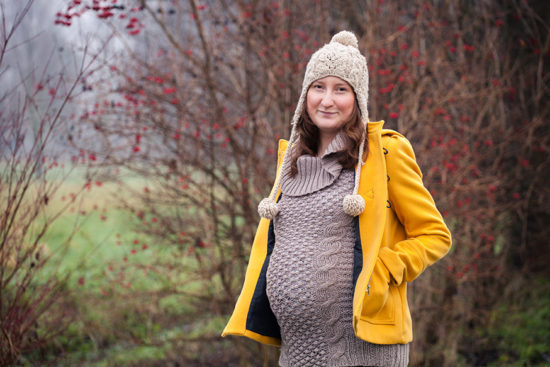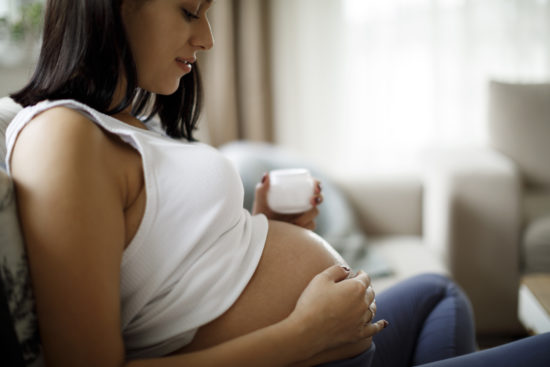Here we talk about keeping well during a winter pregnancy. Read our tips below.

In the winter months, the air is cold and dry, and we tend to spend more time indoors in close proximity to other people. This provides an ideal situation for viruses to spread.
During pregnancy the immune system – the body’s defense against infections – is weakened. This makes pregnant women more susceptible to infections.
While most pregnant women don’t usually become more severely unwell with coronavirus compared to the general public, some may become very ill.
You might consider getting vaccinated against Covid-19, as the Joint Committee on Vaccination and Immunisation (JCVI) recommend that pregnant women get vaccinated. Find out what you need to know about the Covid-19 vaccination and pregnancy.
Pregnant women are at a higher risk of complications from the flu, such as pneumonia. Viral infections, including seasonal flu, can cause harm to a mother and baby during pregnancy.
It can also be serious for new-born babies if they catch the infection from their mothers. In very rare cases, getting flu during pregnancy can also lead to an increased risk of miscarriage, stillbirth, premature birth or having a low weight baby.
To help avoid catching viruses like the flu:
Flu vaccination
The NHS recommends that all pregnant women should get the flu vaccine. The flu vaccine can be given at any time during your pregnancy, whether it’s your the first few weeks or your expected due date. The risk of flu increases in the later stages of pregnancy and it’s never too late to get vaccinated.
If you are pregnant during winter it’s important to wrap up warm and minimise your exposure to extreme cold. That’s especially true in weather conditions like snow and ice, where there is more chance of slipping in icy conditions.
Hormonal changes during pregnancy can lead to dry and itchy skin. And changes in temperature, like when you switch between chilly winter air and warm central heating, can make the skin worse.

As your bump grows the stretching of the skin over your tummy might cause itching. Wearing loose clothes may help prevent it, as your clothes are less likely to rub against your skin and cause irritation. You may also want to avoid synthetic materials and opt for natural ones, such as cotton, instead. These are ‘breathable’ and allow the air to circulate close to your skin.
A cool bath or applying lotion or moisturiser can help soothe itchy skin. Some women find that products with strong perfumes irritate their skin, so you could try using unperfumed lotion or soap.
Mild itching is not usually harmful to you or your baby. But it can sometimes be a sign of a more serious liver condition intrahepatic cholestasis of pregnancy (ICP), also known as obstetric cholestasis (OC). Intrahepatic cholestasis of pregnancy needs medical attention.
Let your midwife or doctor know if you are experiencing itching, particularly if you notice it more in the evenings or at night. They can decide whether you need to have any further investigations.
It’s recommended that all adults, including pregnant and breastfeeding women, consider taking a supplement of 10 micrograms of vitamin D a day.

Vitamin D helps maintain a healthy body and immune system. It forms in our skin in response to sunlight, and as a result vitamin D deficiency is common in northern Europe in the winter months.
Women with pigmented skin and pregnant women are at increased risk of vitamin D deficiency. A dose of at least 25 micrograms of vitamin D a day is recommended in women who might be at high risk of vitamin D deficiency. This includes women with darker skin tones or those who have less sunlight getting to their skin.
Vitamin D deficiency has been associated with a risk of gestational diabetes, pre-eclampsia, small for gestational age and low birth weight infants.
Vitamin D is found in foods such as oily fish, eggs, fortified margarines, and some breakfast cereals. But as vitamin D is found only in a small number of foods, whether naturally or added, it might be difficult to get enough from foods alone.
If you’re not feeling well, contact your GP or midwife. You could also call NHS 111 or access their online NHS 111 service.
Our support line offers practical and emotional support with feeding your baby and general enquiries for parents, members and volunteers: 0300 330 0700.
We also offer antenatal courses which are a great way to find out more about birth, labour and life with a new baby.
Make friends with other parents-to-be and new parents in your local area for support and friendship by seeing what NCT activities are happening nearby.